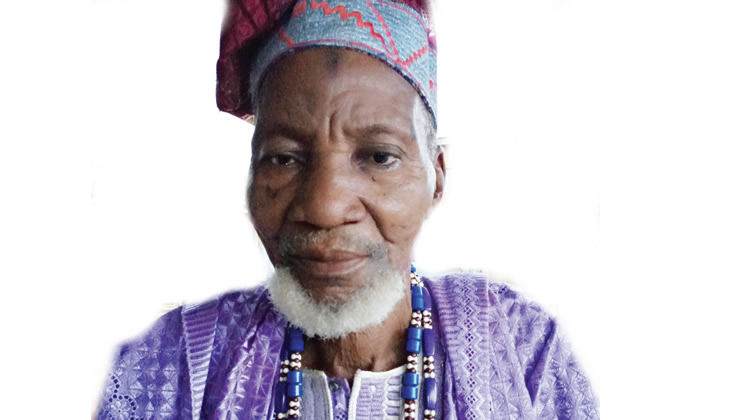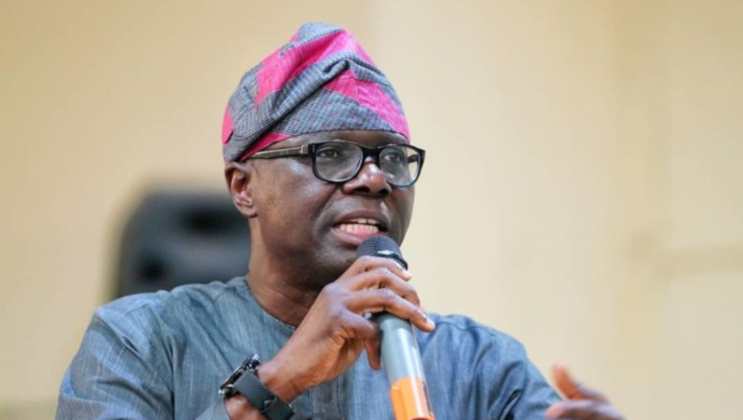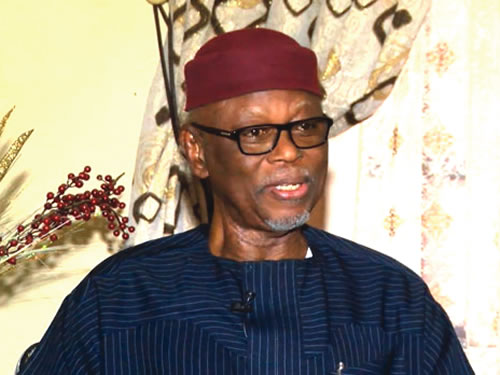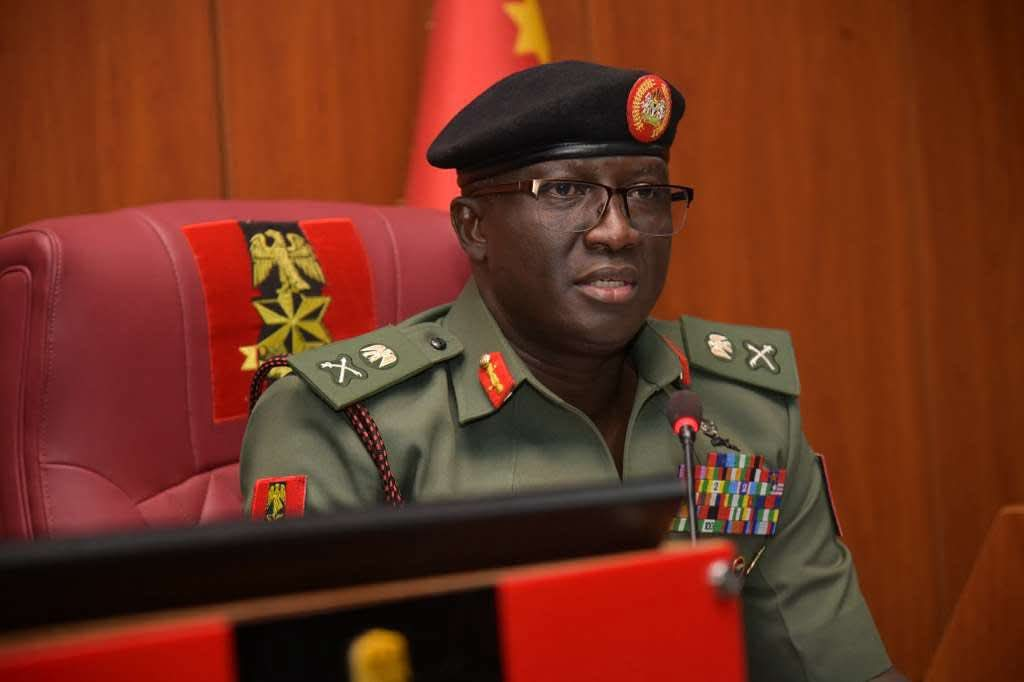By Hon Femi Kehinde
The Yoruba Armoury lies in its supernatural myths, pantheons, mores and history.
Conventionally, an armoury is a place, where weapons are kept. But an armoury can also be things or qualities, that can be used to achieve a particular aim.
The Agbekoya Revolt of 1968/1969, establishes Yoruba core values of resistance, defiance, determination, boldness, assiduity and doggedness.
The Agbekoya Revolt is perhaps the best known peasant driven revolt in Western Nigerian history, and the great example of collective action against unpopular government policies.
In the early 50s, the Western Region Government, established local community depots, to serve as off takers for farm produce. The managers of these depots, before buying from farmers, would examine, grade, bargain and agree at a price.
Farmers were subjected to arbitrary standard in the examination of their farm produce and a substantial amount of their farm produce- cocoa, was discarded as unfit for sale and the low prices they subsequently received was a great disincentive. Depot Managers, became local tyrants.
The farmers complained about the neglected infrastructure of roads, they had to travel to reach the depot and a hefty flat tax rate imposed on them became worrisome and burdensome
Farmers were battling with a tax rate of £1:10µ (1Pound 10 shilling.)
As a result of the collapse of the first Republic, on the 15th of January, 1966, General Thomas Auguyi Ironsi, became the Head of state of Nigeria and was succeeded by General Yakubu Gowon, on the 29th of July, 1966 after a successful Military putsch.
In the Western Region, Lf Col. Adekunle Fajuyi also became the Governor of the Western Region, after the assassination of the Premier of the Western Region- Chief Samuel Ladoke Akintola on the 15th of January 1966. Fajuyi was equally assassinated, alongside- Aguyi Ironsi, in Ibadan, on the 29th of July 1966 after attending a traditional rulers conference, he conveyed, to explain the veracity of the new Decree no. 34, to our Traditional Rulers.
The duo of Ironsi and Fajuyi, after being murdered in the government House, Agodi Ibadan, by some rampaging soldiers, buried their bodies in a shallow grave in Lalupon, in Iwo Road, Ibadan.
Col. Robert Adeyinka Adebayo succeeded Adekunle Fajuyi, his friend and towns folk i. e. both Ekiti men, from contiguous cities of Ado Ekiti and Iyin Ekiti, respectively.
Adebayo was governor of the Western Region from 1966 until 1971. He was later Chief of Staff of the Nigerian army and later Commandant of the Nigerian Defence Academy, Kaduna from where he retired. The civil war broke out in Nigeria in 1967 and did not end until January 1970.
States needed resources to run the operations of government. Chief Jeremiah Oyeniyi Obafemi Awolowo, had now become the Federal Minister of Finance and Vice Chairman of the Federal Executive Council, after his release from the Calabar Prison, by the Federal Government of General Yakubu Gowon.
Adebayo met a very prosperous and robust economy, through Agrarian populism in the Western Region. A sizable population of its citizens were farmers, who were very successful.
Adeyinka Adebayo, looking for opportunities to booster the revenue of the Western Region, imposed a new tax regime on the populace and increased taxable adult tax, from £1:10 µ (One Pound Ten Shillings) to £8 (8 Pounds).
As a resentment, against this obnoxious increase, the farmers formed a union called Agbekoya – (The Union of farmers who reject suffering.)
The Agbekoyas revolted against this arbitrary increase and on the 11th of November, 1968, the Agbekoya Crisis came out full blown when thousands of agitators matched to the Mapo Hall Ibadan armed with sticks, cudgels, weapons and charms, to express their rejection of the new tax as announced by the Governor.
Singing –
“Oke mefa l’ a o San
Oke mefa l’ a o San
Bi o gba kuma
Yi o gba ori bi be
Oke mefa l’ a o san.”
Meaning – “We are paying only 30 shillings. If it cannot be achieved by the application of cudgels, it would be achieved by the application of cutting of heads. We are paying only 30 shillings.“
The government apparatus were equally singing –
“Dan Dan l’owo ori je
Dan Dan l’owo ori je
Tu la si l’aso ibora
Owo Ori l’ a fi ko Mapo”
Meaning – “The payment of tax is compulsory, Just as night cover clothe is compulsory. It is the tax payers funds, that were used to build Mapo hall.”
A combined team of the Army and the Police opened fire on the rampaging demonstrators in Mapo, killing about 20 of them.
This was a calamitous error, characteristic of the Military Government. The Crisis spread spontaneously, to other parts of the Western region.
In parenthesis, payment of tax had always been Ibadan’s albatross and deep cause for community anger, anguish and angst.
It was so great in the early 20th century, that taxable Ibadan adults, were usually arrested, hounded in tax custody in Mapo.
It was so grave until the intervention of Sanusi Adebisi Idikan- first Ibadan notable entrepreneur and philontropist. He was an enigmatic personality, that traversed Ibadan’s landscape in commerce, philanthropy and humanness, until his death in 1938.
Ibadan had become then, the most cosmopolitan city in Nigeria and perhaps black Africa.
Sanusi Adebisi Giwa’s acts of philanthropy, were demonstrated in his first tax rescue effort in Ibadan. Payment of tax by every male adult was made compulsory by the Colonial Government. Most Ibadan adults were subsistent farmers, who could not afford the payment of tax and thus evaded tax payment. The punishment for tax evasion, then was detention in Mapo, which also served as the Treasury Office. A detained tax defaulter usually found it difficult to get someone to bail him out, because most adults were tax evaders, and an attempt by a tax evader, to bail a tax evader, would certainly land the rescuer in detention.
Thus tax problem, became such society anguish, that a Balogun of Ibadan,-Balogun Ola, son of Baale Orowusi, committed suicide in protest of the detention of Ibadan young men for tax evasion.
This valiant self murder, was recognized by the Ibadan people, who named him Kobomoje (the one who displayed gallantry against timidity).
The payment of tax, became a social symbol and tax defaulters were usually mocked and despised by the popular song – “Owo Ori ti d’ ode o, o o’ode o baba wa loko san” Meaning – “Payment of taxation has come, our fathers were the first to pay, the idiots and lazy ones who have not paid are in detention in Mapo”
Adebisi was displeased with the tax situation in Ibadan. His philosophy had always been–(the rich must help the poor who are vulnerable) Adebisi had at this time, been one of the first set of Ibadan elites, perhaps if not the first person, to ride a car, apart from his stable of horses.
For effect, he had his horse dispatch rider–Ladimeji to ride in front of his car, on his way to Mapo, to see the Chief Tax Officer for the Ibadan Colonial Office.
In his meeting with the officer, in the Colonial office, he brokered an understanding –
“I want to be paying tax on behalf of every taxable adult in Ibadan.”
The officer was dumb founded, shocked, nonplussed and asked him if he knew the financial implication of his gesture, but Adebisi still insisted.
Henceforth, the Colonial officer would calculate the amount of tax expected from all Ibadan taxable adults and would go to Adebisi Idikan’s residence to collect the money.
The Agbekoya group was led by Mr. Tafa Adeoye- a renowned farmer/hunter from Akanran in Ibadan.
His able lieutenants were – Mustapha Okikirungbo, Tafa Popoola, Adeniyi Eda, Adebavo Kobiowu, Rafiu Ishola, Mudaashiru Adeniran, Adegoke Akekuejo, Alhaji Lasisi Lalekan Akekaka, Waheed Baba Ijebu from Ajibode.
These leaders decided to set an organisational target as follows-
The removal of local government officials pillaging their villages.
The removal of some Baales
A reduction of the flat Tax rate from £8 An end to the use of force in tax collection
An increase in the prices of cocoa
An improvement of the roads leading to many villages.
The peasants- shouting the “oke mefa” slogan, marched through the villages, to dissuade the farmers, not to pay any taxes to the Military governor of the Western States.
Mayhem, pandemonium then descended on the capital city of Ibadan and many other towns and villages of the Western Region.
The theatre of war started from Akanran at Olorunda junction, specifically at Ogunsola area and Akinyode Village, in Akanran Area, in present day Ona-Ara Local Government of Oyo State.
Governor Adeyinka Adebayo had insisted on using his power, to curtail the crises. Armed police men stomed the villages.
According to Alhaji Lalekan Lasisi Akekaaka, one of Adeoye’s formidable lieutenants, “when they came, our leader Baba Tafa Adeoye was at Akanran while we stayed at Olorunda junction. Baba has said we must not do anything to respond to whatever the government did to us until he was around personally. He said we should not talk until after he must have responded to whatever they asked him. As the police were marching towards us, they were singing that we were stubborn people, who were playing with death. Immediately they got to Olorunda Junction, they shot at two of us. Once they shot two among us, the rest of us went into hiding because Baba Tafa had instructed that we must not respond.”
”The news got to baba and so he came to Olorunda. The news got to him through “Aroko” (the Yoruba traditional GSM). As soon as he got to the police men, one of his guards standing beside him, saw that someone beside him had been felled by the police bullet, he said, so you people indeed came to fight, baba Tafa was not weilding any gun then, so he commanded a gun in the air and shot at the police.”
“It was that single shot that triggered the unrest making many of the police men to start falling that day.
That was how it went and it set up an up roar and its effect resonated through all Yoruba towns and villages.”
At Isara, the Palace of the Odemo- Oba Adeniran Akisanya was torched and his esteemed library was burned. His Mercedes Benz car was equally burned to ashes. Oba Akisanya was a foremost Nigerian Nationalist. He had contested election to the legislative council in 1943 on the platform of National Youth Movement, against Ernest Ikoli.
Akisaya managed to escape to Lagos.
At Ijebu Igbo, the Orimolusi- Oba Adetayo Sami, woke up on December 16,1968, to find out that his Palace had been taken over by demonstrators, who were armed with cudgels, charms and dane guns. His Palace was burnt as well as his cars.
How he escaped, was unknown. Three days later, when he came back to the Palace, the demonstrators regrouped but couldn’t find him. He escaped again.
The Agbekoya Revolt was equally serious in major prominent towns and villages—Ede, Oshogbo, Oyo, Ikire, Gbongan, Iwo, Ile Ogbo, Ejigbo, Ikirun, Ila-Orangun,Ilesha and so many others.
The most violent of the revolt and rampage, was in the city of Ogbomoso- the city of late Samuel Ladoke Akintola, former Premier of the Western Region and that of the raving war impresario – Brig. Benjamin Adekunle, popularly called Black Scorpion and Commander of the third marine commando in the Biafra war- Olusegun Obasanjo succeeded him. Benjamin Adekunle had just been given the chieftaincy title of Asipa of Ogbomoso, by the Soun,- the weekend before the crisis.
Samuel Lodoke Akintola was the previous holder of that title. The rampaging protesters, and tax agitators, mounted a road block at the entrance of the town of ogbomoso, raided the Palace and demanded for Soun Olajide Olayode.
The Soun was seized and killed. His body was dismembered and his head, displayed on the street by the agitators. It was alleged that a traditional native broom, filled with charms, was used to cut his head.Five of Soun’s chiefs, one of his wives and a son were equally slaughtered.
A number of civilians also were killed and wounded as Police and Army units moved in to take over.
As a method of protest, against the military government, the Agbekoya attacked major symbols of power, including court houses, setting free thousands of prisoners. The Agodi Prison in Ibadan, was emptied. Several arrests were equally made.
Tafa Adeoye had now become Agbekoya’s most prominent leader and symbol of the struggle. A folk hero.
In October 1969, chief Obafemi Awolowo who had recently been released from Calabar Prison and now Minister of Finance and Vice Chairman of the Federal executive Council, had to travel to Akanran Ibadan, to meet with Tafa Adeoye. Awolowo made a well publicised trek through the Bush- about Two kilo meters, and consequent upon this visit, many of the demands of the Agbekoya were met.
An armistice was reached. The hitherto flat tax rate of 1 Pound 10 Shillings increased to 8 Pounds, by the Adebayo Government, was reduced to (£2)Two Pounds a year.
An amnesty for tax defaulters was declared and Agbekoya members were soon out, helping local tax officials in the task of collection.
The Adebayo Government, still baffled at the enormity of Tafa Adeoye’s power, and needed to arrest him, to find out the myth surrounding his power. In plotting these, a pretty Police detective was detailed to get the job done. She was an Inspector of Police. She approached Tafa, who was reputed to be all charms, to make friends with him.
The war lord fell in love with this pretty lady and “married” her. A trap was set and appeared to have caught a big prey. After two weeks of the dalliance, romance and “marriage”, plain clothes Police men stormed Tafa Akanran’s residence, and arrested him, for the offence of organising tax agitation against the government.
This perhaps may sound like the popular Samson and Delilah story in the bible.
Delilah, a beautiful lady had seduced Samson, (a soldier chosen by God to destroy the Philistines); in order to know the secret of his strength and destroy him.
After Tafa Adeoye’s arrest, Lasisi Lalekan Akekaaka, his second in command, was invited to the government secretariat Ibadan, to attend a meeting of Yoruba groups who had assembled to find solutions, that would ensure a lasting peace. Akekaaka’s, followers escorted him as usual to this meeting.
His followers were hailing him, to the annoyance of soldiers, who had prevented them from following their leaders.
To ensure orderliness, a soldier guard, slapped one of the Agbekoya boys.
The Agbekoya boy slapped him back, because he felt he should not be treated like a common criminal, and also when he did not fight with him.
The soldier felt embarrassed that a civilian slapped him, and he brought out his gun and he shot at the Agbekoya boy about five times, but nothing happened to the boy. The bullets could not just penetrate.
In Yoruba land, in the midst of warfare, any object could be commanded to serve a different purpose.
In 1983 in Akure, as an aftermath of the election of Michael Ajasin of the UPN and Michael Omoboriowo of the NPN, the people of Ondo State and Akure felt cheated by the unjust announcement and declaration of Akin Omoboriowo as the winner of the gubernatorial election.
They went on rampage and caused mayhem and violence. Properties were destroyed. The buildings of Chief Agbayewa and Hon. Olaiya Fagbamigbe were burnt to ashes, when a piece of egg, was thrown at their houses and the eggs became a combustible instrument. Some mobile police officers deployed to quell the violence, found it difficult to put off their clothes.
Conventionally, and in science, a combustible material is something that could easily be ignited and burned, but an egg had served this purpose in the Akure Crises.
Tafa Adeoye, despite being captured by the luscious power of women, like in the Samson and Delilah story, still remains, a folk hero of the Agbekoya struggle, May his soul and those of his comrades who rescued the Western Region from unjust taxation, continually find peaceful repose with the Lord.
Article by-
Hon (Barr) Femi Kehinde
Former Member, House of Representatives
National Assembly Abuja, representing Ayedire/Iwo/Ola-Oluwa Federal Constituency of Osun State, (1999-2003)
&
Principal Partner
Femi Kehinde & Co (Solicitors)
Ibadan, Lagos and Abuja.

 Entertainment4 days ago
Entertainment4 days ago
 News6 days ago
News6 days ago
 Opinion5 days ago
Opinion5 days ago
 Voice of Emancipation4 days ago
Voice of Emancipation4 days ago
 Featured3 days ago
Featured3 days ago
 Headline6 days ago
Headline6 days ago
 Adding Value5 days ago
Adding Value5 days ago
 Headline3 days ago
Headline3 days ago













